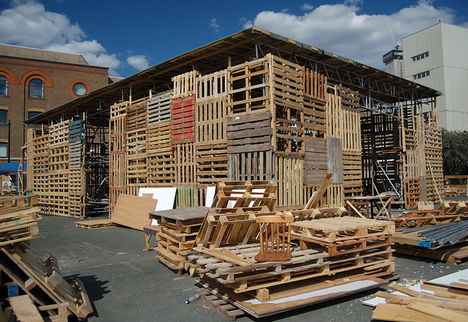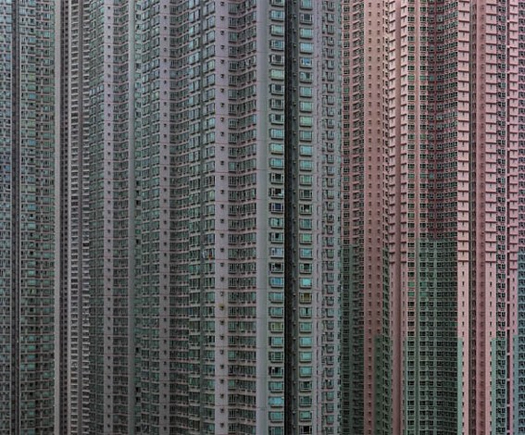Wednesday, August 18. 2010
Via TreeHugger
-----

Images from Oikos Project Some are calling it "junkitechture", a new way of building and designing using only recycled and reclaimed materials. The Jellyfish Theatre, which is under construction right now, is a prime example of this new architecture. It will be the first UK theatre made completely of old materials from all sources: junked theatre sets, building sites, 800 market pallets, old kitchen units that the public bring along. There will e...Read the full story on TreeHugger
Via Mammoth
-----

[Housing in Hong Kong, from photographer Michael Wolf's series "Architecture of Density"]
In the latest Foreign Policy, Parag Khanna argues that the city is increasingly becoming a more important geopolitical entity than the nation-state:
The 21st century will not be dominated by America or China, Brazil or India, but by the city. In an age that appears increasingly unmanageable, cities rather than states are becoming the islands of governance on which the future world order will be built. This new world is not — and will not be — one global village, so much as a network of different ones…
Time, technology, and population growth have massively accelerated the advent of this new urbanized era. Already, more than half the world lives in cities, and the percentage is growing rapidly. But just 100 cities account for 30 percent of the world’s economy, and almost all its innovation.
Neither 19th-century balance-of-power politics nor 20th-century power blocs are useful in understanding this new world. Instead, we have to look back nearly a thousand years, to the medieval age in which cities such as Cairo and Hangzhou were the centers of global gravity, expanding their influence confidently outward in a borderless world. When Marco Polo set forth from Venice along the emergent Silk Road, he extolled the virtues not of empires, but of the cities that made them great. He admired the vineyards of Kashgar and the material abundance of Xi’an, and even foretold — correctly — that no one would believe his account of Chengdu’s merchant wealth. It’s worth remembering that only in Europe were the Middle Ages dark — they were the apogee of Arab, Muslim, and Chinese glory.
While the article is too brief and too wide-ranging to treat its thesis (really, theses, as Khanna makes a host of relatively provocative claims through pure assertion) as thoroughly as it deserves, it is an interesting read. Perhaps his forthcoming book will explore the ideas outlined in the article in more depth? (I have to admit that I am, predictably, partial to his earlier assertion that “independence without infrastructure is futile”.)
|


